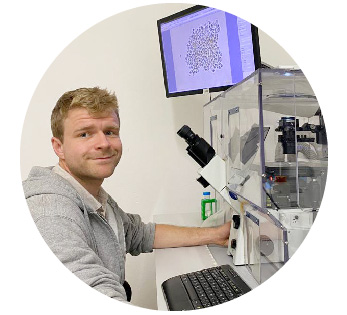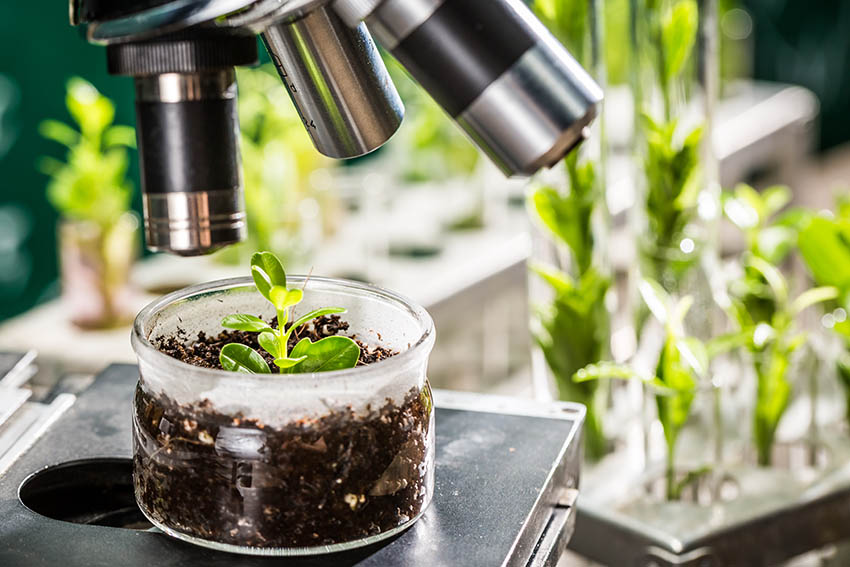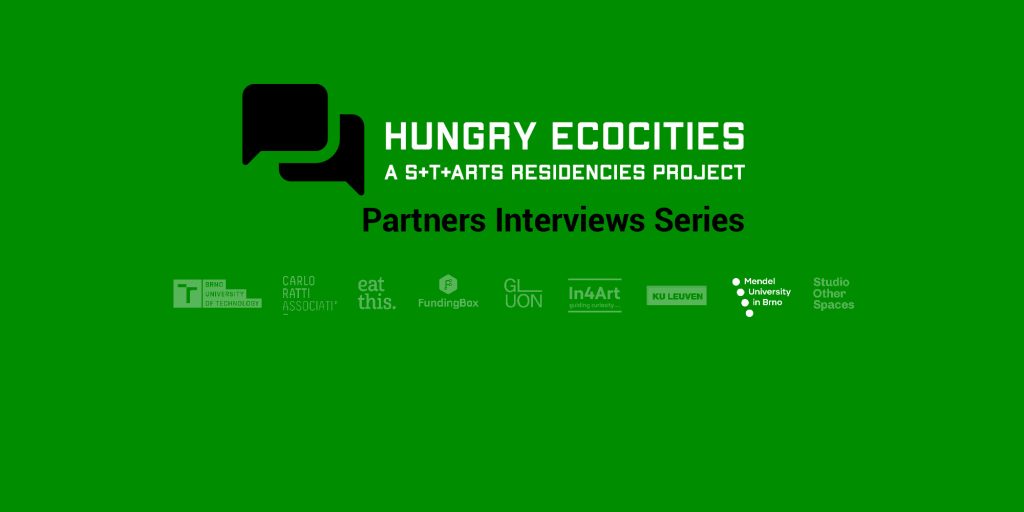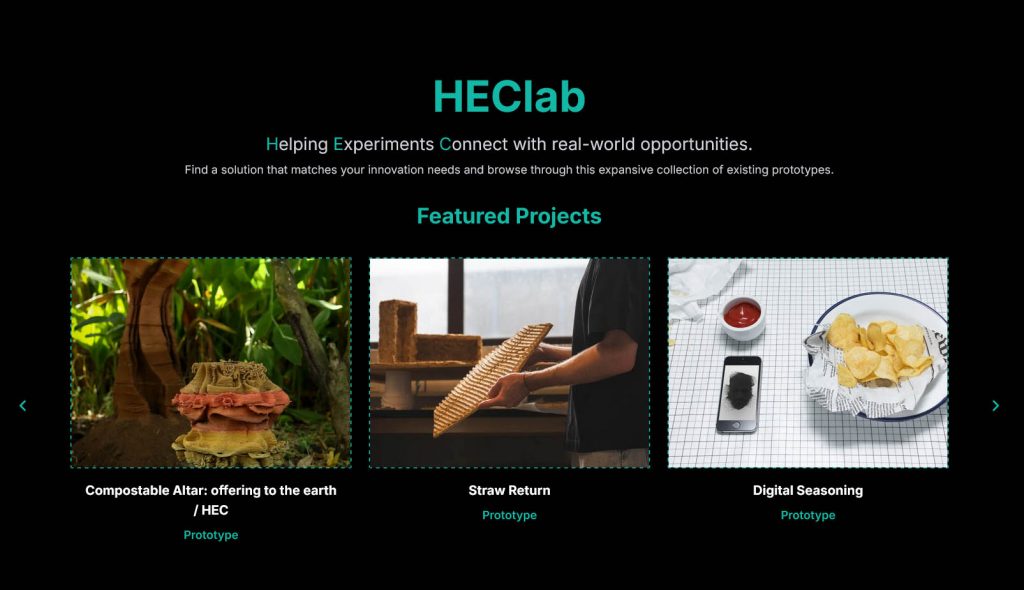Interview with Mendel University
Welcome to our interview series with the partners running HUNGRY ECOCITIES. In this interview with Pavel Chaloupsky we will learn more about Mendel University and their role in the project!
 | Pavel Chaloupsky, PhD in Agricultural Chemistry from Mendel University in Brno, specializes in microalgae interaction with pollutants. His research spans plant genetics, sustainable agriculture, advanced genome editing, and environmental applications of microalgae. With international experience in research internships across Europe and Asia, Pavel is now embarking on a new journey in Analytical Geochemistry, eager to integrate his agricultural science background with geochemistry challenges, driven by a passion for interdisciplinary research. |
Thank you for joining us today! Please could you give us a short introduction to Mendel University and your main activities in the lab?
Thank you for the opportunity to be here. Mendel University, named after Gregor Johann Mendel, the father of genetics, is a university in Brno, Czech Republic. The university’s general focus encompasses many disciplines but is particularly distinguished for its agriculture, forestry, and life sciences programs and research. I’m currently a lab supervisor at the Department of Chemistry and Biochemistry. My role in a lab is multifaceted, involving management, mentorship, safety enforcement, and scientific engagement, all of which are crucial for the productivity and success of our lab. I play a role in mentoring and guiding junior staff and students. This involves providing technical guidance, troubleshooting experimental problems, and fostering a collaborative and supportive lab environment.
What’s your role on the Hungry EcoCities project?
In this project, my primary role is to provide scientific mentoring in plant production and molecular biology. My responsibilities involve guiding and supporting the project residents in understanding and applying advanced techniques and concepts in these areas. Firstly, in the field of plant production, I ensure that the residents have a comprehensive grasp of the latest agricultural developments. I aim to foster a deep understanding of how these practices can be implemented effectively in the resident’s projects. Secondly, concerning the molecular aspects, I mentor residents in applying molecular biology techniques and empower them to leverage these techniques within their projects. In addition to the mentoring, our institution is also responsible for developing and managing a specialised database – the HEClab. This database is a critical component of the Hungry EcoCities as it serves as a repository for the individual residencies outputs. Our role here involves shaping the database structure, ensuring its functionality, and maintaining data integrity. We work closely with IT professionals and project participants to ensure the database meets our data storage, retrieval, and analysis needs. In essence, we aim to bridge the gap between physical experimentation and a digital artistic prototype developed by the Hungry EcoCities resident’s repository.
“Integrating advanced technology with plant biology and arts to address ecological and urban sustainability challenges is fascinating and vital.“
What is the ambition of Mendel University to be part of this project?
Our main emphasis is on popularising novel agricultural and food production approaches. Developing digital prototypes with innovative attributes could help shape a more sustainable future while enhancing public attention would aid this achievement beyond the extent of the current project. Interconnection of the institutions throughout Europe is another great added value of the project and is envisioned as a possibility to enhance creativity and competitiveness in the long term.

Experimentation is crucial to the projects in Hungry EcoCities. What type of experiments within the Humanizing Technology Experiments excites you the most?
What truly excites me the most about the Humanizing Technology Experiments in Hungry EcoCities are the projects directly involving plant sciences and physical experimentation with plants. Integrating advanced technology with plant biology and arts to address ecological and urban sustainability challenges is fascinating and vital. I am particularly intrigued by experiments that explore innovative ways to enhance plant growth and resilience in urban environments. This includes using cutting-edge technology to monitor and optimise plant health, experimenting with new methods of sustainable urban agriculture, and exploring the potential of plants to thrive in challenging environments. Furthermore, the integration of sensor technology and data analytics in plant experimentation is another area that I find highly compelling. By collecting and analysing data on plant growth, environmental conditions, and other key factors, we can gain deeper insights into plant biology and develop more effective strategies for urban agriculture. Lastly, I am excited about the potential for these experiments to advance our scientific understanding and make a tangible impact on urban living. The prospect of creating greener, more sustainable cities through innovative plant science aligns perfectly with my passion for research that has real-world applications.
Could you select one of the HTE experiments and explain your expectations and reflections about it?
One of the Humanizing Technology Experiments that particularly resonates with me is the ‘Acoustic Agriculture‘ project. This experiment focuses on understanding how different wavelengths of sound affect plant performance. My enthusiasm for this project stems from its innovative approach to exploring plant biology and its potential to revolutionise agricultural practices, especially in sound-polluted areas. My expectations for this experiment are multifaceted. Firstly, I anticipate that this research will provide valuable insights into the lesser-known aspects of plant physiology and communication. By exposing plants to various sound frequencies and observing their responses, we can deepen our understanding of how plants perceive and react to their environment. This could open new avenues in plant science, revealing how acoustic stimuli influence growth, stress responses, and overall health. Another aspect I find intriguing is the potential application of this research in urban and industrial areas, where sound pollution is a significant concern. If we can determine specific sound wavelengths that positively influence plant growth, we could use this knowledge to mitigate the effects of noise pollution on urban green spaces and agricultural zones. This not only has implications for plant health but also for ecological balance and urban sustainability. Moreover, this experiment could also contribute to our understanding of plant communication. The idea that plants might use sound waves to communicate with each other or respond to their environment is a relatively unexplored area. If we find evidence supporting this, it could fundamentally change our perception of plant interactions and ecosystems. In terms of reflections, I am particularly excited about the interdisciplinary nature of this experiment. It combines plant science with acoustics and environmental studies, showcasing how integrating different scientific disciplines can lead to groundbreaking discoveries. This experiment aligns perfectly with my passion for research that pushes the boundaries of traditional plant science and has the potential for real-world impact.
This project has received funding from the European Union’s Horizon Europe research and innovation programme under grant agreement 101069990.


